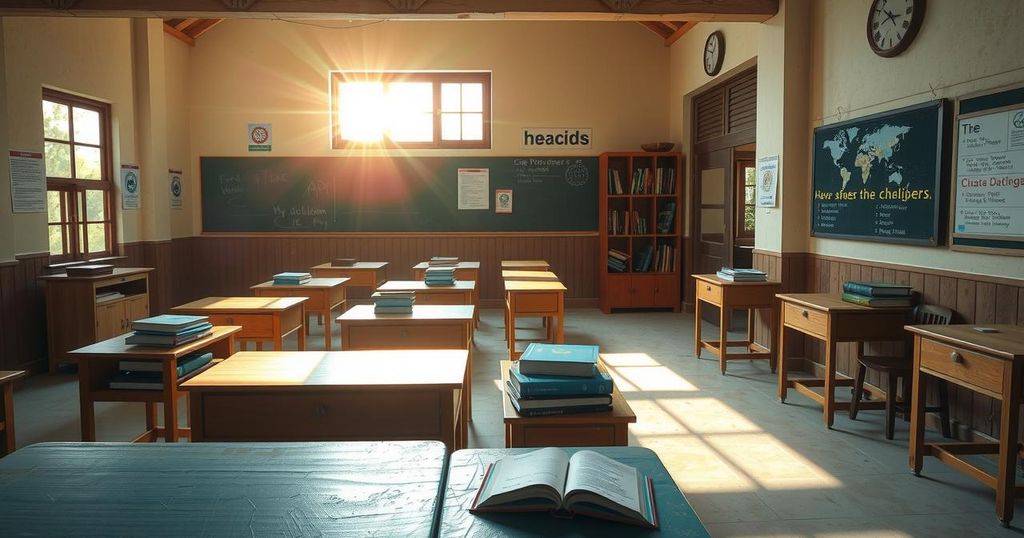Zimbabwean children and teachers are actively experiencing the impacts of climate change, such as unpredictable rainfall and severe droughts. Initiatives from UNICEF and KOICA are introducing climate education in schools to equip students with the knowledge necessary for resilience. Young learners like Mollene and Tapfuma reflect a desire and hope for understanding and addressing these environmental challenges.
Zimbabwe is facing severe challenges due to climate change, as the adverse effects are increasingly evident in daily life. Communities are struggling with unpredictable weather patterns, leading to crop failures and water shortages, which greatly affect their livelihoods. Teachers and students, particularly in rural Masvingo, are particularly aware of these changes and are being prepared to combat them.
Fungai Makureke, a teacher at Sikato Primary School for over ten years, reflects on the drastic shifts in rainfall patterns. She notes, “The rains come late, or sometimes not at all. Our fields remain dry, and the community suffers.” The drought in 2024, influenced by El Niño, was described by her as the worst she had encountered, significantly impacting crop production and water availability.
In response to these challenges, UNICEF, in collaboration with the Korea International Cooperation Agency and governmental bodies, is integrating climate education into the school curriculum. Educators like Priscilla are receiving training to empower students with knowledge and tools to develop resilience against climate impacts. She emphasizes the importance of instilling understanding and proactive attitudes in children regarding their environment.
Students like eleven-year-old Mollene Masiya from Chitembere Village have begun to recognize the connections between climate conditions and food security. She states, “When the rains come, there is food. But now, we sometimes have to walk long distances to fetch water.” Mollene’s enthusiasm for learning about climate change reflects the growing awareness among children in her community.
Similarly, fourteen-year-old Tapfuma Bhasikoro from Magwa Village recalls the destructive storms and their consequences on infrastructure. He articulates the necessity of understanding these shifts to effect meaningful change: “We didn’t know why these things were happening. But now, if we learn more about climate change, maybe we can change how we live, and protect our environment.”
Across Zimbabwe, a new generation is not only becoming aware of climate change but also preparing to engage actively in shaping potential solutions to the environmental challenges they face.
The article highlights the profound impact of climate change on Zimbabwe’s communities, particularly through the experiences of children and educators. As unpredictable weather patterns lead to significant disruptions in agriculture and water supply, initiatives like climate education are vital for empowering the youth. This new generation is eager to learn and engage, fostering hope for effective solutions against climate change.
Original Source: www.unicef.org






